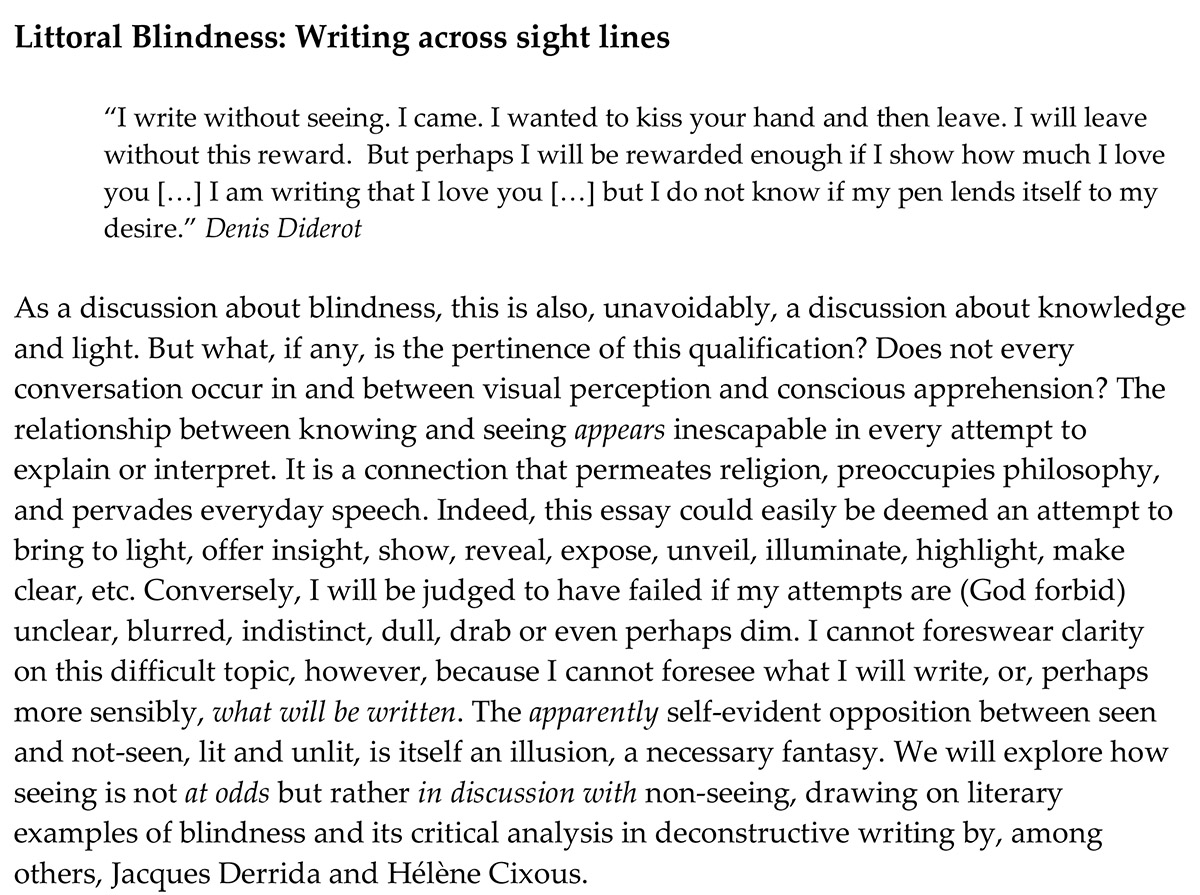As a discussion about blindness, this is also, unavoidably, a discussion about knowledge and light. But what, if any, is the pertinence of this qualification? Does not every conversation occur in and between visual perception and conscious apprehension? The relationship between knowing and seeing appears inescapable in every attempt to explain or interpret. It is a connection that permeates religion, preoccupies philosophy, and pervades everyday speech. Indeed, this essay could easily be deemed an attempt to bring to light, offer insight, show, reveal, expose, unveil, illuminate, highlight, make clear, etc. Conversely, I will be judged to have failed if my attempts are (God forbid) unclear, blurred, indistinct, dull, drab or even perhaps dim. I cannot foreswear clarity on this difficult topic, however, because I cannot foresee what I will write, or, perhaps more sensibly, what will be written. The apparently self-evident opposition between seen and not-seen, lit and unlit, is itself an illusion, a necessary fantasy. We will explore how seeing is not at odds but rather in discussion with non-seeing, drawing on literary examples of blindness and its critical analysis in deconstructive writing by, among others, Jacques Derrida and Hélène Cixous.
Title
Littoral blindness
Publication
Course paper: MA Creative & Critical Writing: University of Sussex
Date
May 2008

